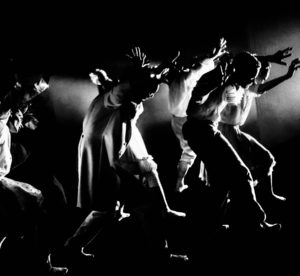You have no items in your cart. Want to get some nice things?
Go shopping
We drove up the spiraling drive to the Doubters Church in Fort Washington. There was Paul, lonely and in love with all of us and LSD, and Jason, barely 15, frail, too easily affronted, about to come out of the closet, and Debbie with hair like frosting and bridge bangs that wisped from her own earnest and trusting breath, and Lila, newly pregnant, who boarded at a Catholic girls academy named Raven Hill, and Steven, who dropped out of high school to replicate the swell and sway of the open sea on his 12-string.
We entered the unlocked church and settled into the pews by moonlight. Paul whose father brokered used restaurant supplies, and Jason whose mother tended bar, and Debbie whose uncle published science fiction, and Lila, her father in upper management at Dupont, and Steven, whose parents taught business math in the public schools. Only Debbie knew the priest, both loved and hated by this congregation, for counseling its precious sons to avoid the draft through Canada or jail.
Then Debbie led us past the painted facade pipes, up into the organ loft and the eight and sixteen foot ash and poplar basses spaced in a century of dust, the scraped and scarred and tape-patched bellows, so that each of us could choose a dented zinc pipe the size of our forearm, and lift it gently from its cradled rank–all of us but Steven, who stayed in the car moping, angry at Debbie for taking off her clothes earlier in the day, up on the plateau, sopping wet as she skipped and twirled about in affirmation of the cloudburst.
We went outside, single-file, to the cemetery and circled the Revolutionary War dead and blew great gasping puffs into the raised pipes. Paul, soon to amass a fortune for his software, and Lila, disinherited, soon to give birth to three evenly spaced sons in Colorado, and Jason, soon to be beaten beyond recognition on the Locust Street strip, Steven joining us too, pipeless, soon to Haifa as a scholar of Kabala, and Debbie, Debbie, bravely leading our bursting, swooning, melismatic vessels.

About Leonard Kress
Leonard Kress has published poetry and fiction in Missouri Review, Massachusetts Review, Iowa Review, American Poetry Review, Harvard Review, etc. His recent collections are The Orpheus Complex and Walk Like Bo Diddley. Living in the Candy Store and Other Poems and his new verse translation of the Polish Romantic epic, Pan Tadeusz by Adam Mickiewicz were both published in 2018. Craniotomy appeared in 2019. He teaches philosophy and religion at Owens College in Ohio, USA. .




